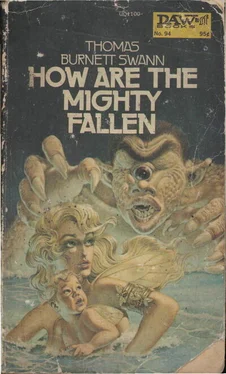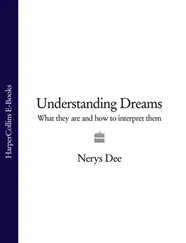Thomas Swann - How are the Mighty fallen
Здесь есть возможность читать онлайн «Thomas Swann - How are the Mighty fallen» весь текст электронной книги совершенно бесплатно (целиком полную версию без сокращений). В некоторых случаях можно слушать аудио, скачать через торрент в формате fb2 и присутствует краткое содержание. Жанр: Фэнтези, на английском языке. Описание произведения, (предисловие) а так же отзывы посетителей доступны на портале библиотеки ЛибКат.
- Название:How are the Mighty fallen
- Автор:
- Жанр:
- Год:неизвестен
- ISBN:нет данных
- Рейтинг книги:4 / 5. Голосов: 1
-
Избранное:Добавить в избранное
- Отзывы:
-
Ваша оценка:
- 80
- 1
- 2
- 3
- 4
- 5
How are the Mighty fallen: краткое содержание, описание и аннотация
Предлагаем к чтению аннотацию, описание, краткое содержание или предисловие (зависит от того, что написал сам автор книги «How are the Mighty fallen»). Если вы не нашли необходимую информацию о книге — напишите в комментариях, мы постараемся отыскать её.
How are the Mighty fallen — читать онлайн бесплатно полную книгу (весь текст) целиком
Ниже представлен текст книги, разбитый по страницам. Система сохранения места последней прочитанной страницы, позволяет с удобством читать онлайн бесплатно книгу «How are the Mighty fallen», без необходимости каждый раз заново искать на чём Вы остановились. Поставьте закладку, и сможете в любой момент перейти на страницу, на которой закончили чтение.
Интервал:
Закладка:
“Good night, Jonathan.” He would speak the precious name. He would rouse the prince from his unaccountable indifference and recall the happy child.
“Good night, David. Don’t forget your bird.”
“I don’t want him,” said David stubbornly. “I only wanted him because he was a gift from you, and now you’re sending me away.”
“David, my brother…”
As unexpectedly as a desert mirage, Michal appeared in the tent. David had met her with Saul and Rizpah. Being the daughter of a man who was both a king and a general, she was used to the ways of men; she was a bold and blithe-hearted girl, ready with a jest, quick with a knife, but neither brazen nor coarse. She lacked the gold of Jonathan and Ahinoam; she did not make you think of a honeycomb or a lark or a cornucopia. But she was the young green buds on the terebinth tree in spring. She was both the loveliest and the liveliest girl David had ever met. Once-yesterday in fact — he would have liked to kiss her and he had dreamed of taking her in a plowed field.
Now he resented her intrusion.
“David,” she urged him. “Stay and break bread with my brother and me.”
Around her neck she wore an image of Ashtoreth. Not the swollen-bellied mother of the Canaanites, but the slender lady of the Philistines, the lady of love who placed not a single prohibition on lovers, either of age or sex, except that they love with their bodies as well as their hearts, their hearts as well as their bodies. According to an old Philistine philosopher, “The body is the temple of the heart. How shall we reach the sacred image unless we enter the gates?”
Forgetting that she was a princess of Israel, forgetting even to nod, he brushed past her and fled toward the tent of Saul. In the shadow of another tent, he saw the figure of Ahinoam, hushed and amber in the light of many fires. She scarcely moved her lips and yet he knew that she was smiling to him.
He knew also with surprise but without shame that it was Ashtoreth, not Yahweh, who had been with Jonathan and him in the tent.
She stood in the opening to Jonathan’s tent and softly called his name.
“Come in, Mother,” he answered in a faint voice. He rose from his couch, only to slump on a mat of reeds and, like a little Bedouin boy, fling his arms around his knees. He refused to look at her, but stared at the far wall of the tent, black goatskin above a cedar clothes chest, as if he could find an answer in its shaggy night.
Ahinoam knelt beside him and placed an arm on his back; smelled the scent of him, the fragrance of grass and leather; yearned to hold him and rout the demon of melancholy which, after Nathan’s death (and David’s visit?), had returned to torture him.
“Half the women of Israel are in love with you,” she said. “The other half want to be your sister or your mother.”
“And I must wed and produce a male child to inherit the throne. Father has told me as much a hundred times.”
“You must do what is in your heart. If you do not choose to wed-”
“ I chose to die in place of Nathan, my friend, but little good it did me.”
“Let me tell you a story.”
“Stories are for children.” He looked like a frightened child.
“What about this one? You are not Saul’s son.”
“Not Saul’s son…?”
She could read his thoughts: Not the son of a marauding desert chieftain who believes that to rule means to conquer cities or to take a concubine and father stalwart sons…
“Whose then?”
“You are twenty but you haven't a beard.”
“I don’t want a beard. It would be dangerous in battle. An enemy could seize it and cut my throat.”
“Other Israelite boys grow beards long before they are twenty.”
“It will come in time.” He shrugged. “What has that to do with my father?”
“Look at my back.” She bared her shoulders and stood in the light of a large lamp, a cruse of oil with seven wicks like the tongues of salamanders.
“Wings,” he gasped. “Like mine.”
“Did you ever wonder how you got them?”
He struggled to speak his thoughts. “When I was a small child, you taught me never to show them. A deformity, I thought. Or worse, the work of a demon. I supposed the others would kill me if they knew. Samuel would hack me to pieces as he did King Agag and then blame Yahweh.”
“They are natural characteristics of your race. In the Golden Age, our wings were built for flight. Now they are petty things. But all things dwindle in these paltry times.”
He looked incredulous. To an Israelite, a creature with wings was either a demon or an angel. The demon was wicked; the angel, terrifying and full of Yahweh’s wrath.
“Have you never wanted to fly?”
“Haven’t all men?”
“No. Some men want to sail ships to the Misty Isles or the Dusky Sea. Others, like Saul, want to trample enemies and raze cities. When they catch one enemy, they find another.”
“Mother,” he pleaded. ‘Tell me who I am.“ His eyes were green and questioning. The forest was in them, the fresh new green of spring-awakened grass; shy, tentative, not yet assured of winter’s departure. The ocean was in them, halcyon-still above a reef of coral.
I was a queen, Jonathan, in my own land, and my lovers were as numerous as the cells in a honeycomb. My people, the Sirens, had come to Crete-the island you call Caphtor-. in the Golden Age; come from their northern home to live in that southern land with the Wanderwooders, the Satyrs and the Dryads, the Leogryphs and the Telesphori. Wings to fly, legs to walk, webbed toes to swim: the ideal race, were we not? But we had angered the Goddess and she had driven us from our palaces of sculptured propylus; stunted our wings and shut us from the sky; exiled us to the alien south. Still, I was a queen. Honey Hair I was called.
Before we came to the island, human men had lived in harmony with the Wanderwooders. Kindly men, the original Cretans and their allies, the Philistines, who worshipped the Goddess with libations of milk and decked her forest shrines with seashells and anemones. But earthquakes toppled their palaces and drove them to flee to the mainland in their goose-prowed ships.
After our exile, we had swum from the north to Crete; without ships; without tools; weary, homeless, hapless. We did not build new palaces. The ruined palaces of the Cretans, sprawling over the land and into the sea, gave us a home, a hive, where a queen could rule her drones and workers and propagate the race. Stone columns bristled with barnacles. The great facades, leaping with bulls and worshippers, had cracked in the sun. Field mice had burrowed where Cretan youths had danced the Dance of the Cranes. No longer could you hear the jangle of the sistrum like the shake of a coin pouch, the beat of drums, the rustle of belled skirts on flagstones, the chatter of blue monkeys in the enclosed gardens of lotus and papyrus. But we made of those half-sunken palaces a place of warmth and delight. We glazed the walls with the rich red clay of the island and painted frescoes of our northern home, the forests of fir and pine, the fleet-toed deer; we swam in the sunken rooms and festooned the floors with seashells and bits of amber and climbed on the ledges to dry our golden hair; we tended herds of sea cows to give us milk and loved them almost as much as the dolphins with which we played.
I was only a child when the first Cyclopes came to the island. I had become a queen when they threatened you, my son of five years.
“Mama,” you cried, springing into my arms from the giant tortoiseshell from which I had made your bed. “What is that terrible roar? It sounds like a Minotaur.”
“A Cyclops, Bumblebee.” That was my name for you before I came to Israel.
“A giant?”
Читать дальшеИнтервал:
Закладка:
Похожие книги на «How are the Mighty fallen»
Представляем Вашему вниманию похожие книги на «How are the Mighty fallen» списком для выбора. Мы отобрали схожую по названию и смыслу литературу в надежде предоставить читателям больше вариантов отыскать новые, интересные, ещё непрочитанные произведения.
Обсуждение, отзывы о книге «How are the Mighty fallen» и просто собственные мнения читателей. Оставьте ваши комментарии, напишите, что Вы думаете о произведении, его смысле или главных героях. Укажите что конкретно понравилось, а что нет, и почему Вы так считаете.












